BingeAware
BingeAware: Innovative tools for Self Assessment and Awareness of Binge Eating Disorder
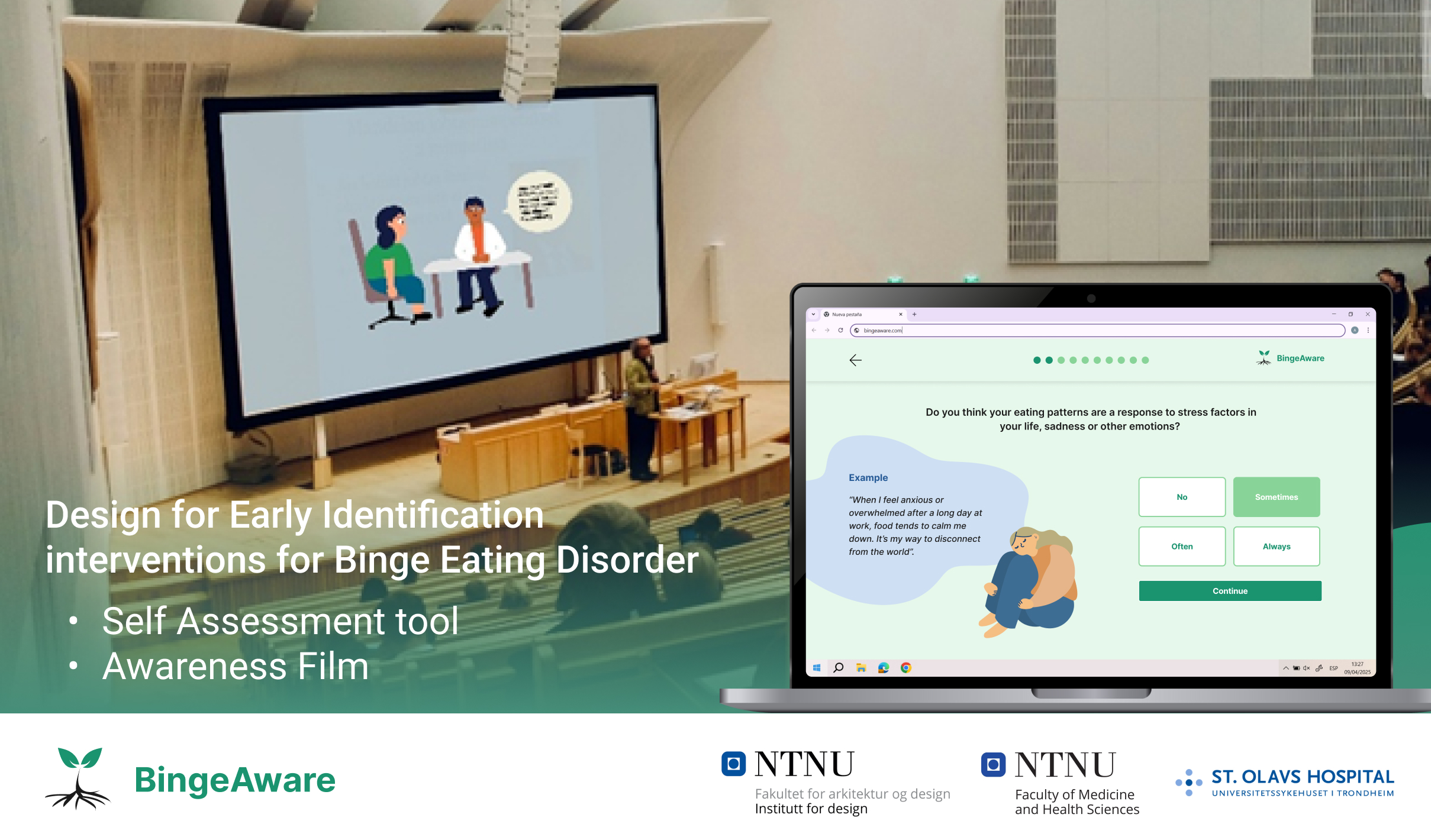
Funded by NTNU Innovation Discovery, the BingeAware project aims to develop tools that promote awareness and facilitate informed discussions around eating behaviors. Our goal is to help individuals communicate effectively with healthcare professionals or loved ones.
This project is led jointly by Ashis Jalote Parmar, Associate Professor at the Department of Design, and Trine Tetlie Eik-Nes, Associate Professor at the Department of Neuromedicine and Movement Science, at the Norwegian University of Science and Technology (NTNU), Norway.
Human-centered design and participatory design methods have been applied to develop two innovative products, currently in beta testing. These tools are based on evidence-based research and incorporate a participatory design approach involving health experts, researchers, and former patients.
Product 1: Film – Understanding Binge Eating: A Mental and Physical Health Perspective
This persona-based awareness film on Binge Eating aims to highlight behaviors and symptoms commonly associated with binge eating, food challenges, weight concerns, and body image.
Designed for both healthcare professionals and individuals, this film enhances understanding of early identification of BED, thus helping individuals develop self-awareness and communicate more effectively with healthcare professionals or loved ones. This film was developed by Linea M. Breivik (2024), Master’s student at the Department of Design, NTNU, under the supervision of Ashis Jalote Parmar and Trine Tetlie Eik-Nes.
The video is in Norwegian. Watch it here.
Product 2: Binge Awareness Self-Assessment Tool
BingeAware is designed to help individuals recognize symptoms of Binge Eating Disorder (BED) and other challenges related to food, weight, and body image. The Binge Aware assessment was developed with user insights from patients, health professionals, research and the diagnostic guidelines for binge eating disorders from the Diagnostic and Statistical Manual of Mental Disorders, Fifth Edition (DSM-V).
Developed by a multidisciplinary team of health professionals, researchers, user organizations, and former patients, BingeAware integrates real-world observations and clinical insights to provide a valuable screening tool.
This screener is intended to identify behaviors and symptoms commonly associated with binge eating and related challenges. While it serves as a helpful guide, BingeAware is not a diagnostic tool and does not replace medical advice. The results are not definitive diagnoses, and for accurate assessment or support, individuals should consult a healthcare professional.
The initial product concept and assessment tool Analytics has been jointly developed by Ashis Jalote Parmar (Associate Professor, Department of Design) and Trine Tetlie Eik-Nes (Associate Professor, Department of Neuromedicine and Movement Science). Persona-based design concept by Linea M. Breivik as part of D9 project and user testing by Andrea Porras Elizo, (both Department of Design, NTNU).
The global obesity epidemic is a growing concern, as obesity is a chronic condition - long-lasting and recurrent. While obesity is not classified as a mental disorder, psychological factors often play a significant role in its development. Binge Eating Disorder (BED) is one such condition where frequent overeating leads to weight gain.
Research shows that 30% of individuals seeking obesity treatment suffer from BED, making early identification crucial. Addressing binge eating before focusing on weight loss is essential, as prioritizing weight alone can worsen the condition.
There is a need to deepen our understanding of binge eating and its impact on both physical and mental well-being.
- Design for Early Identification of Binge Eating Disorder: Resources for Healthcare Professionals, Linea M. Breivik (2024). (Supervisor: Ashis Jalote Parmar and co-supervisor: Trine Tetlie Eik-Nes)
Link to the the Masters Thesis in NTNU Open.
- Jalote Parmar, A., Breivik, L., Elizo, A., and Eik-Nes, T. T. (2025): “BingeAware”-Persona Driven User Centered Design of mHealth App for Self-Assessment of Binge Eating Disorder (BED)
* Forthcoming.
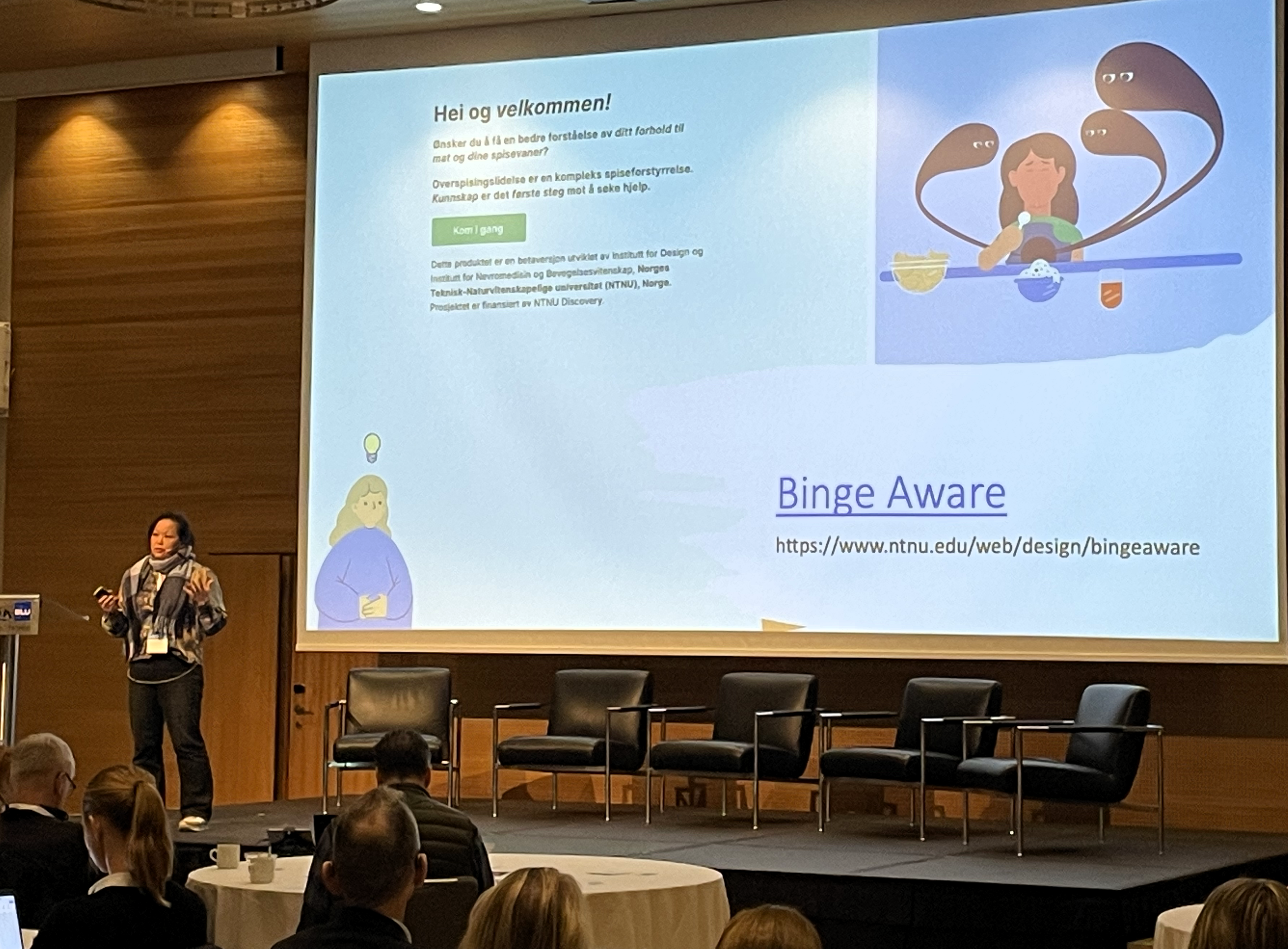
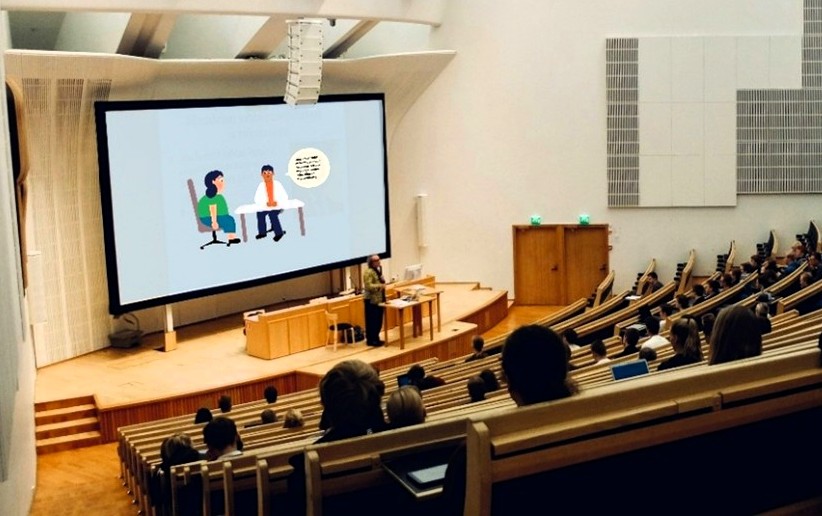
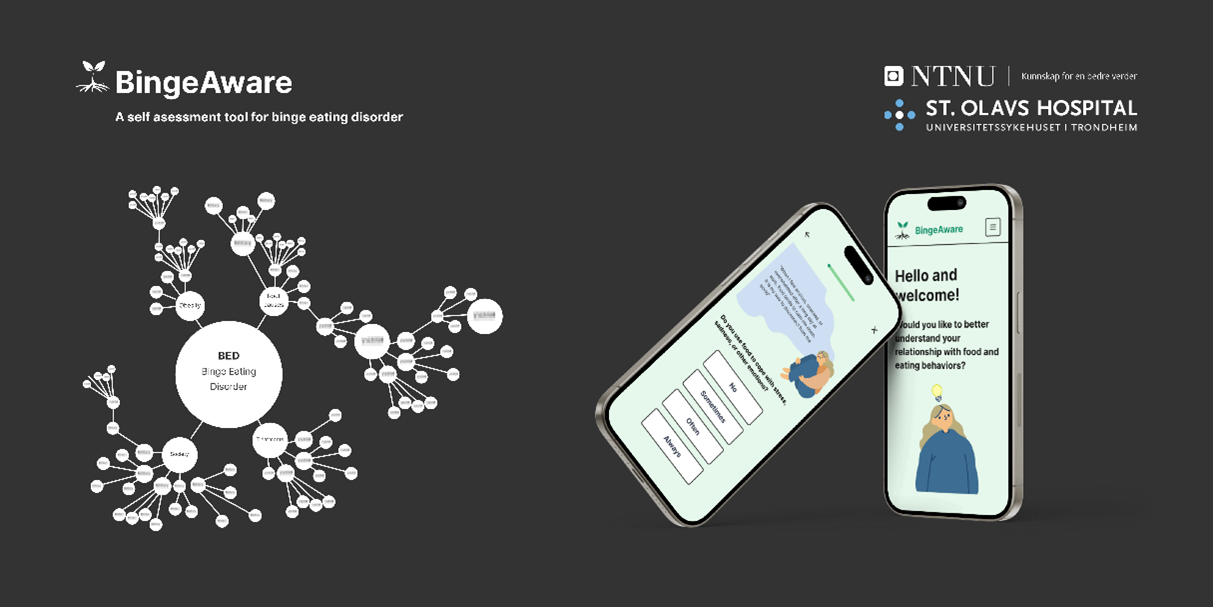
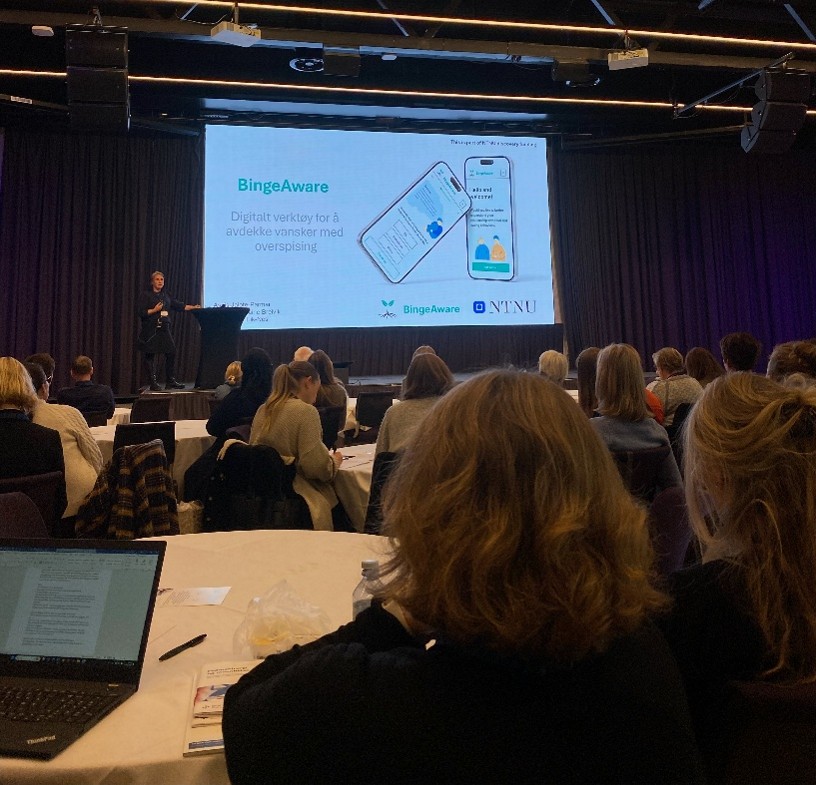
The BingeAware team
Project leader
Ashis Jalote Parmar
Associate Professor of Design & Innovation, Department of Design, NTNU
Leader Design for health lab (ID)
and Design for global health
Project leader
Trine Tetlie Eik-Nes
Associate Professor, Department of Neuromedicine and Movement Science, NTNU
Stjørdal Community Mental Health Centre, Nord-Trøndelag Hospital Trust
Master Student,
(graduated 2024)
Linea Madelaine Breivik
Design Researcher
Andrea Porras Elizo
